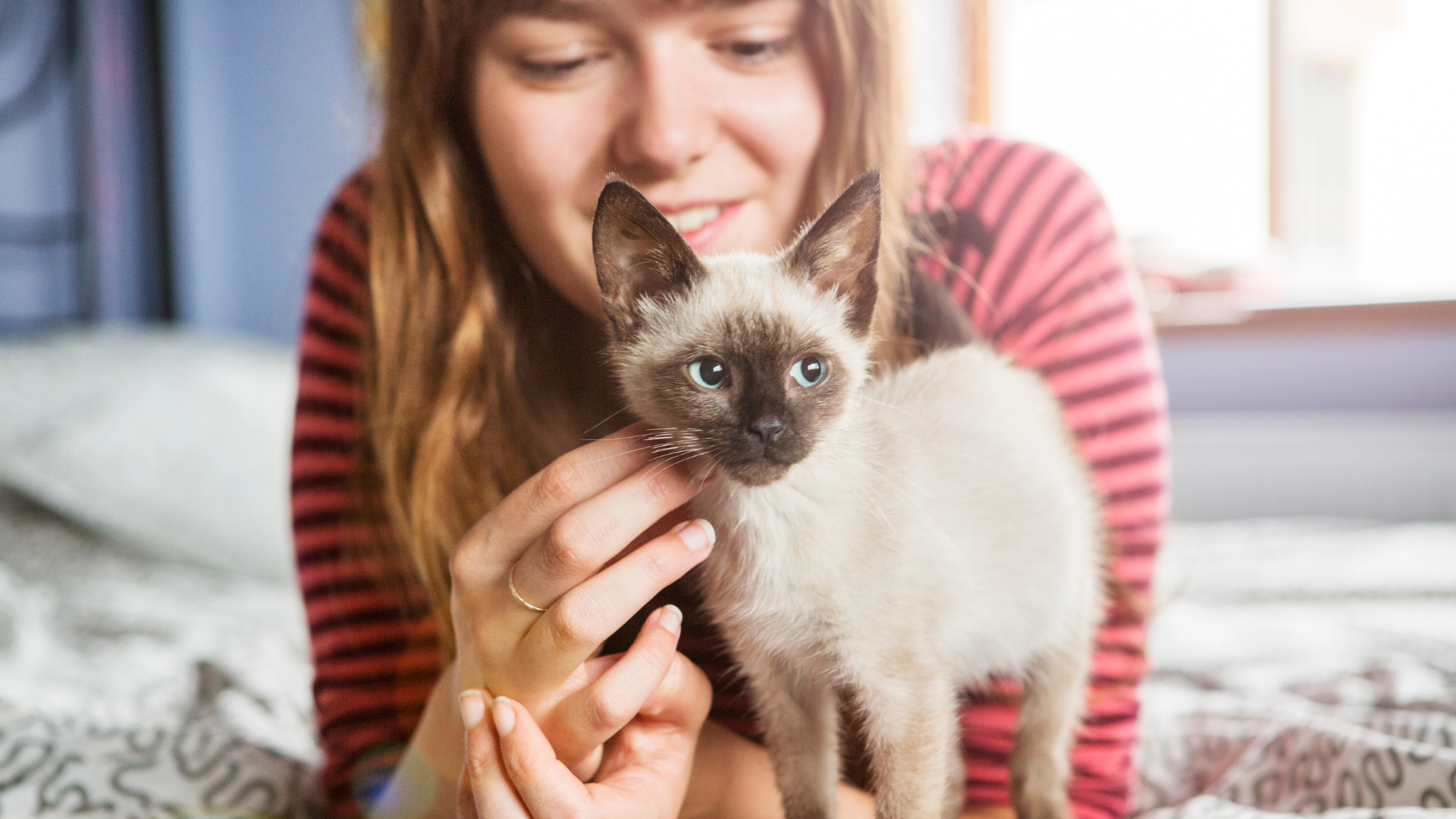
Bringing home a new kitten is an exciting and heart-warming experience… most likely a long-awaited event, too. While these tiny balls of fur bring joy, laughter, fun and companionship, they also require careful preparation and attention; there is a lot to consider with these tiny beings.
From kitten-proofing your home to picking out the best kitten food, there's a lot to think about before their arrival. As with any pet ownership, it is an ongoing commitment that evolves as they grow older. Be prepared to adapt and pivot to their requirements as they change, and above all else, get to know your kitten like a new friend. This way you are aware when something is different or seems off balance.
Owners are always the best judge of their pets, intuition counts for a lot but for everything else, we have a great guide to help a smooth transition for you and your new feline friend.
How to prepare for bringing home a new kitten
Preparing ahead of schedule is the best start you can give your kitty (and you). It should be taken seriously as running around at the last minute to grab all you need often leads to chaos, stress, incorrect interactions, mistakes, and even dangerous situations for your kitten. This is not an ideal environment in which you want to bring home your new kitten. Your home should be calm, friendly, and structured.
To keep you on course, peruse our quick checklist. Each point should be considered and actioned before your kitten arrives home. If you are unsure of any, please consult your breeder, adoption center or vet.
- Read and research about owning a kitten. Talk to other owners, your local vet and/or groomer
- Kitten-proof your home and yard if present
- Remove any toxic plants, food, products and substances
- Hide or protect electrical wires
- Decide if they'll be an indoor vs outdoor cat (or both). Cater accordingly.
- Is your yard or outside space safe for when/if they roam outdoors?
- Purchase essential supplies such as bowls, the best cat litter box, food, pheromone diffusers and toys before their arrival
- Create a bedding area or safe space
- Set up a feeding location (not near their litter tray)
- Choose a local veterinary practice and register your kitten
- Prepare for the journey home. At a minimum, you will need blankets or towels, the best cat carrier, and enough fuel in the tank or charge in the car battery.

- Introduce your kitten to your home and safe space and gradually to other members. For multi-pet households we have you covered too!
- Establish a feeding routine and ensure all involved understand it
- Schedule a health check with your vet
- Begin socialization – according to America’s VCA veterinary hospitals the prime time for kittens to learn socialization is between two to 12 weeks of age. Don’t delay this important work
- Plan a grooming routine, especially if they are a long hair cat. Consult with a groomer if you are uncertain
- Plan for gradual house exploration
- Research nutrition and the best diet for your kitten
- Don’t forget playtime! Try out some of the best kitten toys to discover their preferences.
- Learn about basic training techniques
- Plan for long-term health care, for example, neutering and dental care
What is the first thing to do when you bring a kitten home?
Follow along for a summary of what to do and expect on your first day with your new kitten, apart from being excited!
1. Picking them up
Whether you are collecting your kitten from a rescue or a breeder, the procedure is essentially the same. The breeder or establishment will already be expecting you and any suitable checks surrounding you as an appropriate owner will have been carried out and passed.
Upon collection, paperwork and any information you will need will be given to you. It is a relatively quick appointment so as not to overstress the kitten, but bring with you a list of questions or concerns you may have and ask before you leave. Ensure you are given the breeder’s or rescue’s contact details in case of problems post-collection.
2. The journey home
Organize a suitable ride home, a car ideally with a separate driver, leaving you to concentrate on your new addition. Use a secure and safe cat carrier lined with newspaper/training pad and a cozy soft towel or blanket. Place in any security toy or material the breeder may have given you as well. Traveling with cats in the car needn’t be problematic but do drive carefully and calmly… no road rage or sudden movements.
3. Pheromones
Consider spraying your car and cat carrier with a suitable pheromone to help create a calm and feline-friendly environment for the journey home. They can also be used to prepare your house and are available in various formats – sprays, diffusers, plug-ins, and the best calming cat collars.
4. Once at home
Bring the carrier into your prepared room, place it near their safe space, and open the carrier door. Let your kitten come out on their terms in their own time. Don’t over fuss, sit quietly nearby and offer gentle encouragement to help tease them out. Eventually, they will make the move and venture out to investigate.
Ensure fresh water is available at all times and try a small amount of food. Don’t worry at the stage if they refuse their nosh. Show the kitten where their litter box is located and allow the day to unfold organically. Spend time in the room, and with them allowing the kitten to approach you when they are ready. Keep other pets and family members away initially.

Your first week with a new kitten
It’s a big week and it should be approached calmly with a calculated and organized feeding routine to avoid creating food aggression or anxiety in cats. Remember, felines are territorial, and being away from their mother and what they consider home, can make them feel vulnerable and out of sorts. Establishing a consistent routine with food, play, and so on as quickly as possible, aids in instilling a feeling of security in your kitty.
During the first week, they will slowly investigate their new surroundings, other humans and pets. Give them time and space to do this, at their pace, not yours! Do not discourage them from jumping onto high places, remove them from hiding, or over-force them to visit new rooms, areas, or people.
Get to know them and let your kitten familiarize themselves with you. Spend time with them, let them learn your voice, your smells, your routines, your rules and handle them as much as possible.
How long does it take for a kitten to adjust to a new home?
Whilst there is no right answer to this, you can expect the process to take anywhere from a few days to a few weeks. Preparing correctly, establishing routines, giving attention and maintaining a healthy environment all go a long way to speeding this process up successfully.

What not to do with a new kitten?
Don’t: Not socialize them. This includes people, other pets, places and play. Failure to do so often leads to many types of aggression developing. Aggression accounts for 27% of cats being given up to shelters, according to a study cited by The Cornell Feline Health Centre.
Don’t: Feed food not developed and sold specifically for cats. Cats have specific nutritional needs that, for example, dogs don’t. Feeding an incorrect diet, such as a canine one or human food only, will lead to serious health problems and even death.
Don’t: Have lots of strong offensive smells in the home. Keep fragrances, including scented candles, low-key, especially at the beginning. Cats are hypersensitive with a powerful nose. Strong and strange smells can cause them to stress and interfere with normal behavior like eating.
Don’t: Punish them for unwanted behavior or traits. Instead, learn how to correct these effectively and correctly, for example, scratching furniture isn’t an activity you want them to engage with but to stop.
Don’t: Forget to get your kitten insured. This eases money worries, financial limitations, and concerns over medical care and assistance.
With proper preparation, patience, and love, you'll build a strong bond with your new companion. Remember each kitten is unique, so be prepared to adjust your approach based on their personality and needs. Enjoy the playful antics, the sweet purrs, and the unconditional love that your new kitten will bring into your life!







